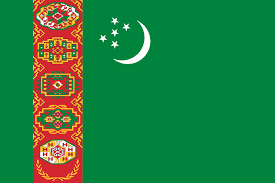Difference between revisions of "Language/Turkmen/Grammar/Pronouns"
m (Quick edit) |
m (Quick edit) |
||
| Line 98: | Line 98: | ||
<br><hr>If you have any questions, please ask them in the comments section below.<br>Feel free to edit this wiki page if you think it can be improved. 😎 | <br><hr>If you have any questions, please ask them in the comments section below.<br>Feel free to edit this wiki page if you think it can be improved. 😎 | ||
==Related Lessons== | |||
* [[Language/Turkmen/Grammar/Word-order|Word order]] | |||
* [[Language/Turkmen/Grammar/Plurals|Plurals]] | |||
* [[Language/Turkmen/Grammar/Personal-Pronouns|Personal Pronouns]] | |||
* [[Language/Turkmen/Grammar/Ordinal-Numbers|Ordinal Numbers]] | |||
* [[Language/Turkmen/Grammar/Negation|Negation]] | |||
* [[Language/Turkmen/Grammar/Future-Tense|Future Tense]] | |||
* [[Language/Turkmen/Grammar/To-have|To have]] | |||
* [[Language/Turkmen/Grammar/Past-in-the-past-(pluperfect)|Past in the past (pluperfect)]] | |||
* [[Language/Turkmen/Grammar/Question-words|Question words]] | |||
{{Turkmen-Page-Bottom}} | {{Turkmen-Page-Bottom}} | ||
Revision as of 23:04, 25 February 2023
Hi Turkmen learners! 😊
In today's lesson, we will be discussing pronouns in the Turkmen language. Pronouns are words that can replace nouns and are used to refer to people, places, things, or ideas without repeating the nouns. Knowing how to use pronouns correctly is essential for speaking and writing Turkmen fluently.
Personal Pronouns
Personal pronouns are used to refer to people or things. In Turkmen, there are two types of personal pronouns: subject pronouns and object pronouns.
Subject Pronouns
Subject pronouns are used when the pronoun is the subject of the sentence. The subject pronouns in Turkmen are:
- Men - I
- Sen - You (singular)
- Ol - He/She/It
- Biz - We
- Siz - You (plural)
- Olar - They
For example:
- Men ýöremäge başladym. - I started working.
- Sen ýöremäge başladyň. - You started working.
- Ol ýöremäge başlady. - He/She/It started working.
- Biz ýöremäge başladylar. - We started working.
- Siz ýöremäge başladylar. - You (plural) started working.
- Olar ýöremäge başladylar. - They started working.
Object Pronouns
Object pronouns are used when the pronoun is the object of the sentence. The object pronouns in Turkmen are:
- Meni - Me
- Seni - You (singular)
- Ony - Him/Her/It
- Bizi - Us
- Sizi - You (plural)
- Olary - Them
For example:
- Meni gördüňmi? - Did you see me?
- Seni gördüm. - I saw you.
- Ony gördüm. - I saw him/her/it.
- Bizi gördüňmi? - Did you see us?
- Sizi gördüm. - I saw you (plural).
- Olary gördüm. - I saw them.
Possessive Pronouns
Possessive pronouns are used to indicate ownership or possession. The possessive pronouns in Turkmen are:
- Menim - Mine
- Seniň - Yours (singular)
- Onun - His/Hers/Its
- Biziň - Ours
- Siziň - Yours (plural)
- Olaryň - Theirs
For example:
- Menim kitaplarym. - My books.
- Seniň kitaplaryň. - Yours (singular).
- Onun kitaplary. - His/Hers/Its.
- Biziň kitaplarymyz. - Ours.
- Siziň kitaplaryňyz. - Yours (plural).
- Olaryň kitaplary. - Theirs.
Demonstrative Pronouns
Demonstrative pronouns are used to point out specific people, places, things, or ideas. The demonstrative pronouns in Turkmen are:
- Bu - This
- Şu - That
- Şol - That (over there)
For example:
- Bu kitap meniň. - This book is mine.
- Şu kitap seniň. - That book is yours.
- Şol kitap onun. - That book over there is his/hers/its.
Interrogative Pronouns
Interrogative pronouns are used to ask questions. The interrogative pronouns in Turkmen are:
- Kim - Who
- Näme - What
- Nähili - Which
For example:
- Kim ýöredýär? - Who is working?
- Näme ýöredýär? - What is working?
- Nähili ýöredýär? - Which is working?
If you have any questions, please ask them in the comments section below.
Feel free to edit this wiki page if you think it can be improved. 😎
Related Lessons
- Word order
- Plurals
- Personal Pronouns
- Ordinal Numbers
- Negation
- Future Tense
- To have
- Past in the past (pluperfect)
- Question words
